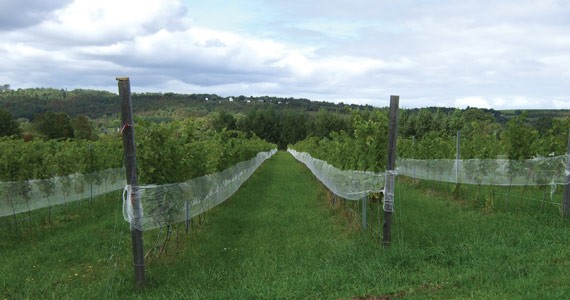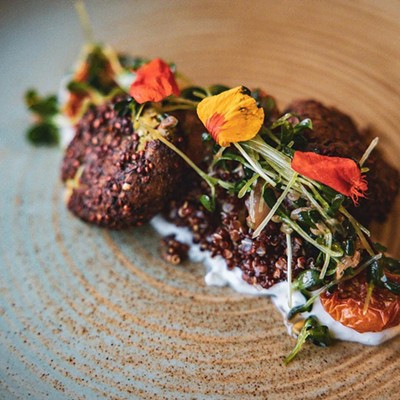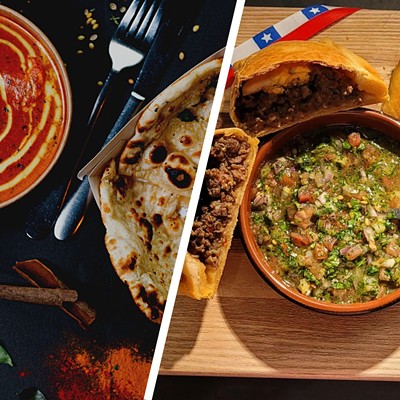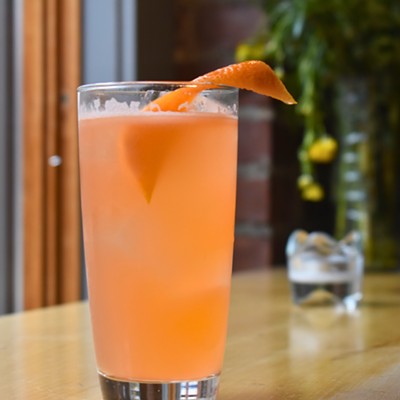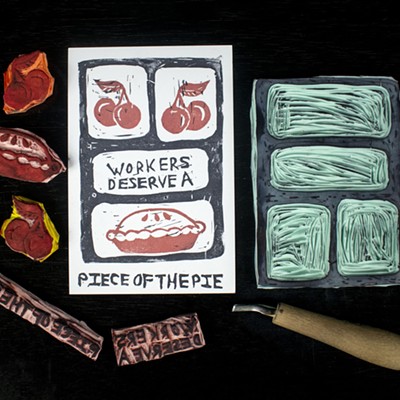Why was making organic wine a priority for you at L'Acadie?
I was a winemaker in British Columbia's Okanagan Valley in the beginning of my career and saw many conventional vineyards use synthetic fertilizers for greedy, higher crop yields and then have to spray many dangerous pesticides to react to diseases in their artificially high-vigour, dense vine canopies. My last BC post was head winemaker at an organic winery with a healthier approach. When we moved back to my wife's native Nova Scotia with our young family we wanted to follow that path and were the first to plant a certified organic vineyard.
What makes a wine certified organic?
Certified organic wines are made from organic grapes by encouraging a healthy soil and being proactive in its management. Beneath the rows of grapevines the soil is a living organism with composted manure applications, mulching, compost teas and seaweed extracts added to ensure soil enrichment and maintain healthy microbiological life and earthworm populations. No pesticides, fungicides or chemical fertilizers are required in an organic vineyard.
To be certified, winemaking must be organic as well. All of our sparkling wines are naturally fermented in their bottles. This traditional method is what has been used in Champagne, France for centuries. Artificially carbonating, chilling and injecting wine with carbon dioxide, cannot be certified organic.
All wines contain naturally occurring sulfites produced from yeast during ferment. The Canadian and European organic standard allows the addition of sulfite for wine stabilization but only half of the amount as in conventional winemaking and only the pure form of sulfite, not the chemically created form.
All of our wines have natural cork. Sustainably harvested, wine corks have an important impact in the sustainable conservation of forest. The International Organization of Vine and Wine has officially recognized the role of natural cork closures in reducing greenhouse gases.
Organic winemaking does not allow the use of sorbate, a preservative used in many conventional wines, most often added to wines with residual sweetness and artificially carbonated wines. Our wines do not have sorbate added.
What are the benefits of choosing to drink an organic wine?
You are avoiding unnecessary chemicals in your diet, such as pesticides and preservatives. Studies and analysis have shown that vineyard pesticides are in conventional wines. Also, terroir, a sense of place, is more clearly expressed in the wine. Terroir is a French term that refers to the combined effects of the vineyard soil and microclimate. Our sparkling wines are suitable for a vegan diet. We do not use animal-based riddling agents to help move yeast lees down the bottle neck during the riddling process. We do not use gelatin and only organic egg whites to clarify some of our still wines.
As a producer of organic wine, are there benefits for you?
We planted on a 30-acre parcel of land that had been fallow for decades and were able to be certified organic from inception. Our practices maintain soil health so that it can be bountiful for our future winemaking generations. Our family health is important and living on an organic vineyard ensures we lessen our exposure to disease-causing pesticides.
Bruce Ewert and his wife Pauline Scott opened Gaspereau Valley's L'Acadie Vineyards in 2008 and were the first in Nova Scotia to produce certified organic wines.

